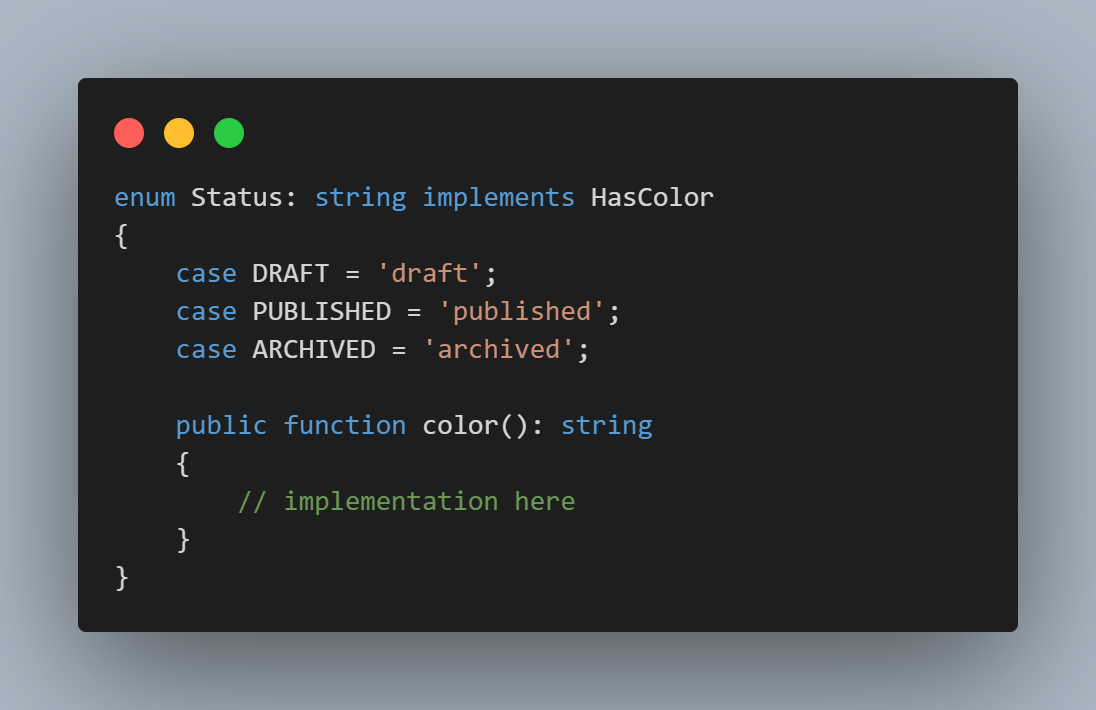Laravel Performance Tip: Use INT Enums - Here's Why!
Posted by Kosal

If you're looking to boost the performance of your Laravel applications, there's a small but powerful change you can make: use INT enums instead of string enums. Let's explore why this matters and how to do it right in Laravel.
A Quick Recap: What Are Enums?
Enums (short for enumerations) were introduced in PHP 8.1. They allow you to define a set of named values in a clean, structured way.
In Laravel, enums are often used to represent fixed sets of options, like UserStatus, OrderType, or PaymentMethod.
enum UserStatus: int
{
case Active = 1;
case Inactive = 2;
case Banned = 3;
}
Why Do Developers Use Strings? 🤔
Many developers default to storing enums as strings for readability:
enum UserStatus: string
{
case Active = 'active';
case Inactive = 'inactive';
case Banned = 'banned';
}
While this is human-friendly, it's not ideal for performance.
Why INT Enums Are Better ⚡
Using numeric (int) enums can provide substantial performance benefits, especially at scale.
✅ Faster Queries
- Numbers are compared faster than strings by the database engine.
- Indexed integer fields are significantly quicker to search, sort, and filter.
✅ Smaller Storage
- An
unsignedTinyIntegeronly takes 1 byte of storage. - In contrast, a
VARCHAR(10)could take up to 11 bytes (plus index overhead). - Smaller fields = faster I/O and smaller indexes.
✅ Better Index Performance
- Queries on numeric indexes are generally 2x to 5x faster than string indexes.
- For large tables (1M+ rows), this speedup can reach 5x.
How to Store INT Enums in Laravel
Follow these steps to use backed enums with integers in Laravel:
1. Define the Enum as intbacked
enum UserStatus: int
{
case Active = 1;
case Inactive = 2;
case Banned = 3;
}
2. Use unsignedTinyInteger() in the migration
$table->unsignedTinyInteger('status');
3. Cast the attribute in your Eloquent model
use App\Enums\UserStatus;
protected $casts = [
'status' => UserStatus::class,
];
Now Laravel will automatically cast between the enum and the database value.
Real-World Impact
| Metric | VARCHAR | TINYINT |
|---|---|---|
| Storage Size | ~11 bytes | 1 byte |
| Index Lookup Speed | Slower | 2x–5x faster |
| Performance (1M+ records) | ~baseline | Up to 5x faster |
Conclusion
Using int enums in Laravel is a simple but effective optimization that improves:
- Database query performance
- Index efficiency
- Storage footprint
When readability is still important, you can always map the enum to user-friendly labels in your application layer — no need to sacrifice performance for clarity.
💡 Pro Tip: Stick with unsignedTinyInteger for most enums — it's efficient and supports values 0–255, which is more than enough for most use cases.